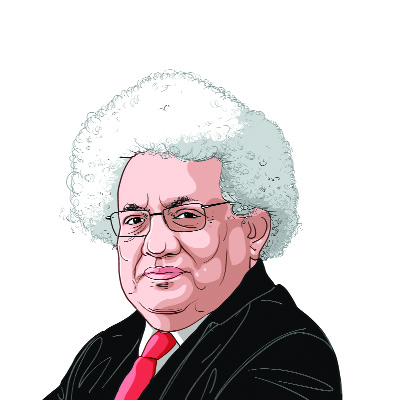Opinion Out of my mind: Dilli Door Ast
It was from Rajani Kothari, that we learned to think of Indian politics on its own

Rajani Kothari, who has just died, was a pathbreaking social scientist. It was from him that we learned to think of Indian politics on its own rather than on Western ideological terms. His idea that the Congress ‘system’ was an all-inclusive, pan-Indian arrangement gave us much to think about and to understand about how things were in India beneath the empty rhetoric of the English-speaking classes.
The Congress system was interested in recruiting diverse castes and regional groups who did not agree on any ideology except the catechism of secularism and socialism, neither of which were coherent concepts. But between 1947 and 1969, it survived and gave an open, tolerant democracy to India where diverse opinions flourished. The system was killed by Indira Gandhi when she split the Congress. We had instead a family firm where the top jobs were outside the reach of all but beta-beti, and the only ideology was sycophancy. That system has now ended and we need not think about it anymore.
A new political system is struggling to be born, and it may very well be in Delhi that it will come to life. Kiran Bedi’s induction into the BJP has attracted many superficial and snide remarks. What people seem to have missed is that after the Congress system cracked in 1969, new forces have come into politics mainly from mass movements which took on the system. The JP movement threw up the Janata conglomerate. Its many splits occupy much of the political space today. The BJP transformed itself from Jan Sangh into a Janata party, as did the many Janata Dal factions which are desperately trying to reunite.
The next mass movement was led by Anna Hazare. It did not lead to a dramatic climax as the JP movement, but its embers are still glowing. The fact that Arvind Kejriwal and Kiran Bedi come from the same movement but now belong to different parties has generated much needless cynicism. The fact is that since the Congress was a closed family shop, aspiring politicians could only come up from mass movements. These movements are always broad coalitions with no ideological uniformity. Both Kejriwal and Bedi are activists, doers. They want to implement changes to present governance. They have a very light ideological coating. They are effective only if they are in power.
Just 13 months ago, Kejriwal stunned the country by leading his party to a significant showing in the Delhi elections. The media went wild and the middle classes, weary of the Congress and unsure of the BJP, thought they had found a saviour. Alas, the adoration went to Kejriwal’s and his party’s head. He threw away power by behaving like an opposition and then overextended the party by fighting across India in the general election.
In the meantime, a more experienced chief minister redrew the political map by moving the BJP to the centre and fought on the platform of inclusive development. The middle classes were reassured and the poor felt hopeful. He led his party to a first-time absolute majority. He has raised high hopes and has to work round the clock to fulfil the promise. But as he has fought in election after election in the states, his Parivar has become an obstacle. They do not care for development or governance but indulge in their paranoia about the minorities and their insatiable urge to march backwards to old glories of ancient India.
Delhi is crucial for the battle within the Parivar as much as the battle between the AAP and BJP. If Sakshi Maharaj and ghar wapsi and Ramzada (sic) prevail, the BJP would be lucky to do as well as it did the last time. Minorities may be hateful to the Parivar, but their votes swing seats as we saw in Jammu and Kashmir where the BJP failed to be the largest single party. This is where Kiran Bedi’s induction into the party is crucial. It is a signal that the BJP is a do-something party, not a perpetual mischief-maker. The BJP aspires to be the new system, broad-based like the Congress used to be. To succeed in this move, the BJP needs to win Delhi convincingly.
The question is: Can it?


